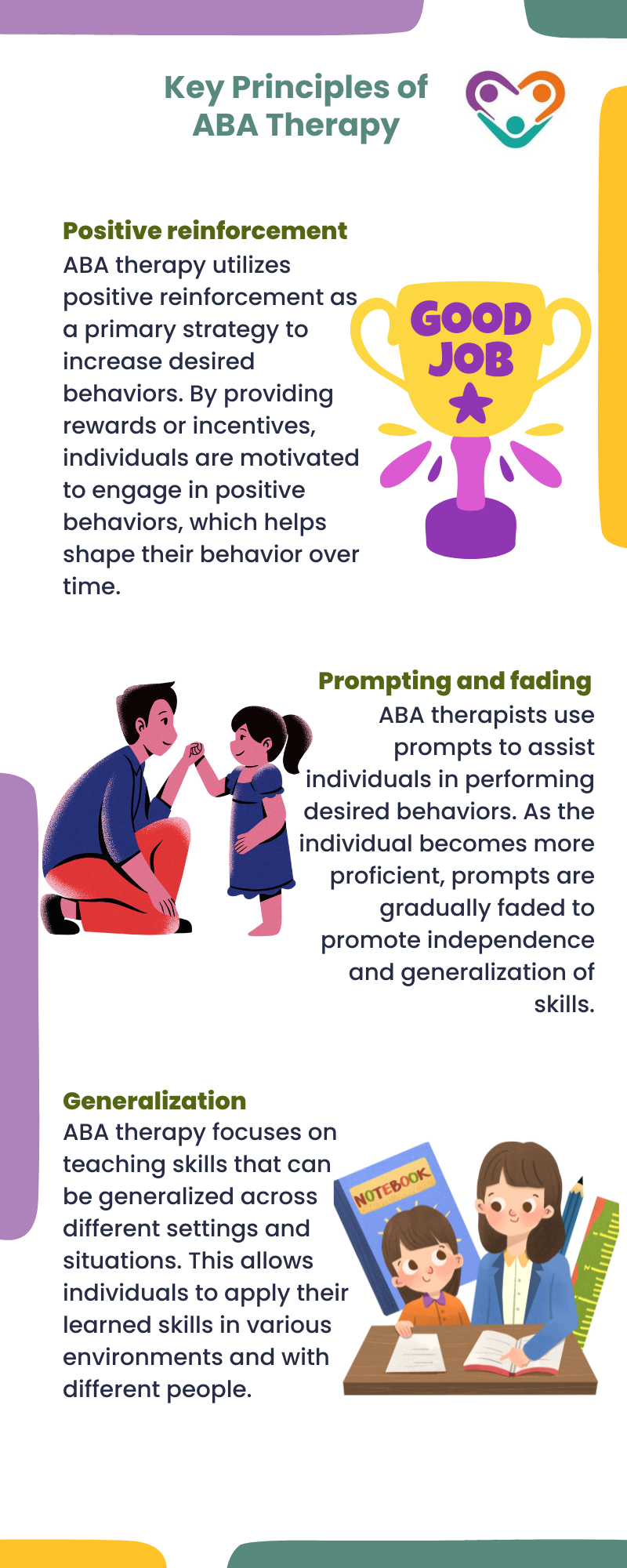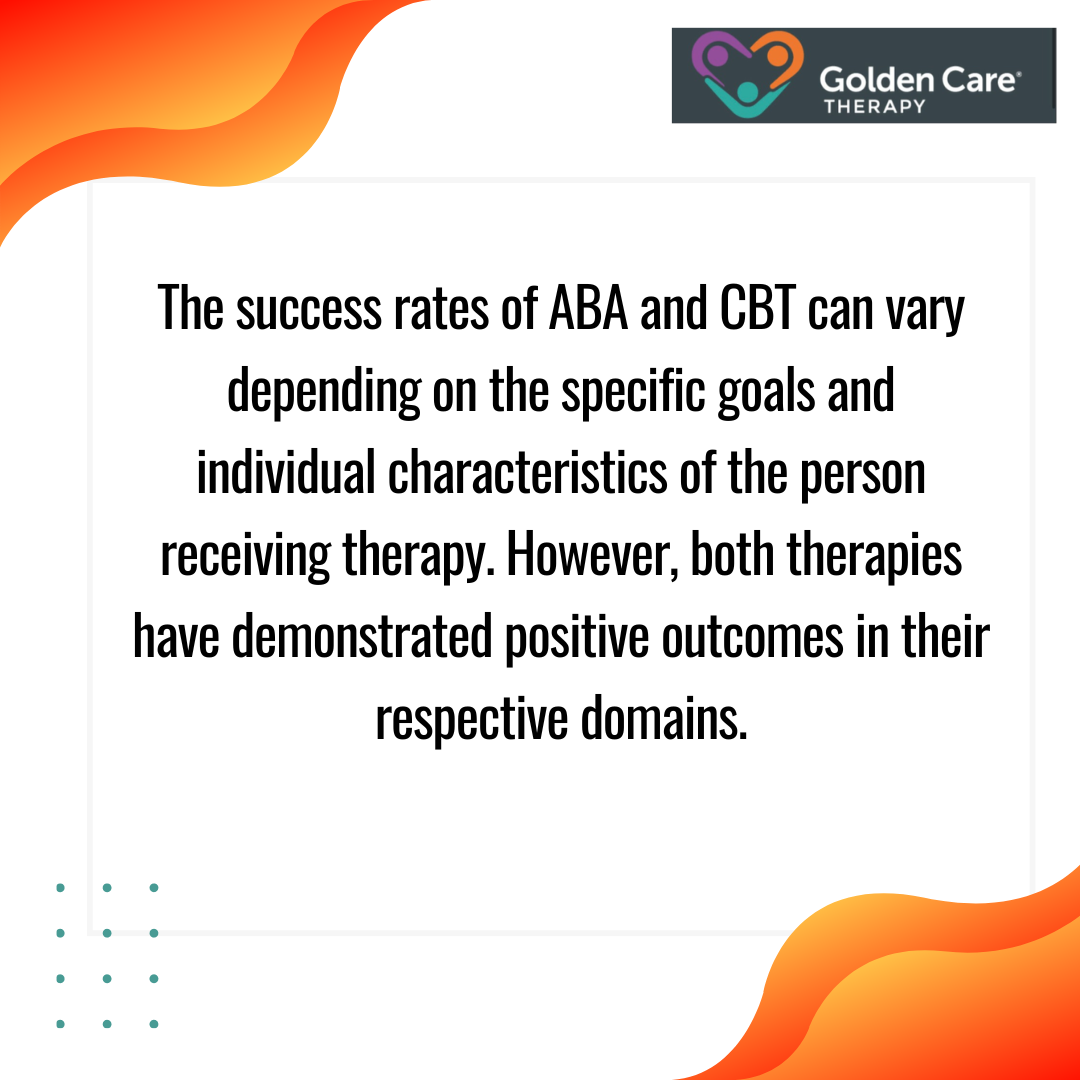
Table of Contents
ABA therapy, or Applied Behavior Analysis therapy, is a systematic approach to behavior modification that is widely used in the treatment of Autism Spectrum Disorder (ASD) and other developmental disorders.
It involves the application of interventions based on principles of operant conditioning to improve socially significant behaviors. ABA therapy focuses on observable behaviors and environmental factors to understand and modify behavior patterns.
However, is it a far better than CBT (cognitive-behavioral therapy)? Let’s take a look!
Overview of ABA Therapy
ABA is rooted in the principles of learning theory. ABA therapists analyze behavior by breaking it down into smaller components and identifying the antecedents (triggers) and consequences that influence those behaviors.
By understanding the functions of behavior, ABA therapists can develop effective interventions. Here are its key principles:
Overview of CBT Therapy
Meanwhile, Cognitive-Behavioral Therapy (CBT) is a widely used therapeutic approach that focuses on identifying and changing thought patterns and behaviors. It is commonly utilized to treat a wide range of disorders such as phobias, addiction, depression, and anxiety.
CBT emphasizes the understanding of thoughts and feelings that influence behaviors to improve overall well-being.
The principles of CBT revolve around the concept that our thoughts, emotions, and behaviors are interconnected. By identifying and challenging negative or unhelpful thoughts, individuals can positively modify their emotions and behaviors.
The key principles of CBT include:
- Cognitive Restructuring – This technique involves identifying negative or irrational thoughts and replacing them with more rational and positive thoughts.
- Goal-Oriented – CBT is typically a short-term, goal-oriented therapy that focuses on specific issues or symptoms. The therapist and the individual work collaboratively to set achievable goals and develop strategies to address them.
- Practical Approach – CBT takes a practical approach to problem-solving. It focuses on developing coping skills and strategies that can be applied in real-life situations.
Key Differences Between ABA and CBT
One of the fundamental distinctions between ABA and CBT lies in their focus on behavior and thoughts, respectively.
ABA therapy concentrates on specific and immediate behavioral issues through a cycle of measurement, treatment, and evaluation. It aims to improve socially significant behaviors by applying interventions based on principles of operant conditioning. The emphasis is on observable behaviors and the environmental factors that contribute to them.
On the other hand, CBT therapy focuses on helping individuals change their behaviors by addressing thoughts, emotions, and habits that influence them. It delves into the understanding of thoughts and feelings that impact behaviors.
By identifying and challenging negative or unhelpful thoughts and beliefs, individuals can develop more adaptive and positive behavioral patterns.
Another notable distinction is their approach to addressing environmental factors and emotional influence. ABA therapy places significant emphasis on the role of environmental factors in shaping behavior. It takes into account the external circumstances and events that influence behavior and uses interventions to modify those factors.
In contrast, CBT therapy recognizes the influence of emotions on behavior. It focuses on helping individuals understand and manage their thoughts and emotions, which ultimately influence their behavior.
Both have their strengths and unique approaches to therapy. ABA is particularly effective in reducing severe challenging behavior, such as kicking, hitting, and self-injurious behavior, especially in children with autism. It provides a structured and systematic approach to behavior modification.
CBT, on the other hand, is widely used to treat a range of disorders, including phobias, addiction, depression, and anxiety. It emphasizes the understanding of thoughts and emotions that impact behavior.
Is ABA Therapy Better?
ABA is currently the most well-researched and effective treatment for reducing severe challenging behavior, such as kicking, hitting, and self-injurious behavior, particularly in children with autism.
Numerous studies have even demonstrated the positive impact of ABA in improving behavior and enhancing learning abilities in individuals with autism spectrum disorder (ASD).
ABA has shown remarkable success in reducing challenging behaviors and improving social and communication skills in individuals with autism. According to research, early intensive ABA intervention can lead to significant improvements in cognitive abilities, adaptive skills, and long-term outcomes for children with autism.
CBT has also shown high success rates in treating various mental health conditions. Studies have indicated that CBT can be effective in reducing symptoms of depression and anxiety, enhancing coping skills, and improving overall psychological well-being.
Both are evidence-based therapies with proven effectiveness in their respective areas. While ABA has shown significant benefits in reducing challenging behaviors in individuals with autism, CBT has demonstrated success in treating mental health conditions such as depression and anxiety.
To conclude, the choice between the two therapies depends on the specific needs and goals of the individual receiving treatment.
Sources:
https://alphaschool.com/aba-vs-cbt-what-is-the-difference
- Autism Routine Disruption in Adults: Coping Tips - July 16, 2024
- Autism and Obsession: An Overview - July 16, 2024
- Autism and Taking Clothes Off: Management Tips - July 16, 2024



